The Global Tuna Alliance and Tuna Protection Alliance Jointly Call for Action at ICCAT The International Commission for the Conservation of Atlantic Tunas (ICCAT) is responsible for the conservation and management of tunas, sharks, and other highly migratory species in the Atlantic Ocean. At their annual meeting this week, ICCAT members must take substantive actions to improve the long-term sustainability of tuna stocks.
A 2018 assessment of Atlantic bigeye tuna shows the stock is overfished and subject to overfishing; the Atlantic yellowfin tuna stock may now be overfished as well. Both are caught in fisheries using Fish Aggregating Devices (FADs), which account for nearly 50% of all tropical tuna catches in the Atlantic Ocean. Unless FAD management measures are strengthened by the ICCAT, tuna stock in the Atlantic remain at risk.
The Global Tuna Alliance and Tuna Protection Alliance, together representing 24 supply chain companies in North West Europe, calls on members and cooperating non-members at the 26th Meeting of ICCAT to take the following critical actions:
Adoption of stock-specific management measures for yellowfin and bigeye that are consistent with scientific advice
This includes appropriate and fully-allocated Total Allowable Catch (TAC) levels. Capacity limits that are commensurate with the TAC allocations. Provisions to ensure catches are in compliance with the TACs and procedures to identify and sanction violations of the current TAC allocations.
Strengthening FAD management measures
We fully support conservation and commercial concerns in calling for the ICCAT to adopt an ecosystem-based conservation and management plan including stronger FAD measures and limits, as well as ensuring that existing measures are being fully complied with. Unless FAD management measures are strengthened in the convention area, tuna stocks in the Atlantic will remain at risk.
Reforming the regulations of at-sea transshipment
Another important issue impacting tuna stocks is at-sea transshipment. Transshipment is recognized as one of the major missing links to understanding where and how illegally caught fish finds its way to the market. Between 2012 and 2016, high seas transshipment events increased significantly within the ICCAT Convention Area, while quantities of transshipped fish have also increased by 57 percent in this period. But while transshipment has increased, regulation of transshipment in the ICCAT is inadequate and not in line with best practices. Therefore, at its meeting in November 2019, we ask the ICCAT to adopt reforms to Recommendation 2016-15 regulating at-sea transshipment to ensure these activities are well-managed, transparent and in line with best practices, and that a mechanism is put in place for auditing compliance. Notes The Global Tuna Alliance is an independent group of retailers and tuna supply chain companies, who are committed to implementing the objectives laid out in World Economic Forum’s Tuna 2020 Traceability Declaration. The Tuna Protection Alliance (TUPA) is an initiative, coordinated by Earthworm France, driven by canned tuna market players who recognise that retailers, producers and fleets must work together to quickly adopt better fishing practices and management to restore balance and safeguard resources for future generations.
Provisions to ensure catches are in compliance with the TACs and procedures to identify and sanction violations of the current TAC allocations. Strengthening FAD management measures We fully support conservation and commercial concerns in calling for the ICCAT to adopt an ecosystem-based conservation and management plan including stronger FAD measures and limits, as well as ensuring that existing measures are being fully complied with. Unless FAD management measures are strengthened in the convention area, tuna stocks in the Atlantic will remain at risk. Reforming the regulations of at-sea transshipment Another important issue impacting tuna stocks is at-sea transshipment. Transshipment is recognized as one of the major missing links to understanding where and how illegally caught fish finds its way to the market. Between 2012 and 2016, high seas transshipment events increased significantly within the ICCAT Convention Area, while quantities of transshipped fish have also increased by 57 percent in this period. But while transshipment has increased, regulation of transshipment in the ICCAT is inadequate and not in line with best practices.
Therefore, at its meeting in November 2019, we ask the ICCAT to adopt reforms to Recommendation 2016-15 regulating at-sea transshipment to ensure these activities are well-managed, transparent and in line with best practices, and that a mechanism is put in place for auditing compliance.
Notes
The Global Tuna Alliance is an independent group of retailers and tuna supply chain companies, who are committed to implementing the objectives laid out in World Economic Forum’s Tuna 2020 Traceability Declaration.
The Tuna Protection Alliance (TUPA) is an initiative, coordinated by Earthworm France, driven by canned tuna market players who recognise that retailers, producers and fleets must work together to quickly adopt better fishing practices and management to restore balance and safeguard resources for future generations.
